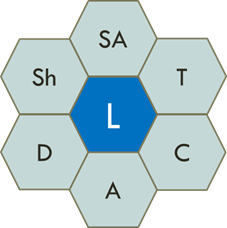Crew Resource Management (CRM) is a proven and effective team-enhancement process that has been adopted by the aviation industry for the last 35 years and is gaining traction in other domains such as the energy industry and the medical profession.
The CRM approach focuses on the non-technical skills of the individuals that make up a team. They include 7 core principles; Leadership, Situational Awareness, Teamwork, Communication, Assertiveness, Decision Making, and Shaping Factors. Each of these topics can often be presented as stand-alone subjects, however, research has demonstrated that an effective team requires a sound understanding of all of the 7 core principles. CRM training courses are tailored for the operating conditions of an organisation and reflect the demands and seniority of a team. In the oil and gas industry the CRM concept has been adopted (IOGP 501 IOGP Report 501 – Crew Resource Management for Well Operations teams | IOGP Publications library) under the name Well Operations Crew Resource Management (WOCRM).

Components of each of the core principles include, but are not limited by, the following:
Leadership is ‘the art of influencing fellow human beings towards a direction for the common good.’
This can be further distilled for the oil and gas industry into ‘Leadership is what managers and supervisors do to provide direction, guidance and support to their team members.’
Leadership sits central to the CRM concept, and for good reason. Good leadership enables effective teamwork, improves communication, helps develop accurate SA which leads to better decision making. A good leader will also understand the need for assertiveness and help control shaping factors within the workplace. This module explores leadership through John Adair’s Effective Leadership model, examines how leadership and management are mutually inclusive, and outlines the role that Emotional Intelligence plays in leadership.
SA can be explained simply as ‘knowing what is going on around you.’ In simple terms, SA is the mental picture that an individual has of actual events happening around them and how they perceive the events will develop in the near term. Our SA is susceptible to our level of attention and perception of events, and influenced by multiple biases. SA also works at the group level. Better SA improves the fidelity of decision making. Good SA is accurately knowing what is going on around you as people often carry out their daily tasks without realizing that their perception of unfolding events around them is flawed, even wrong.
Team working is central to most work settings but is essentially important in higher-risk industries, such as offshore oil and gas production as well as aviation, medicine and maritime. Team makeup is likely to change on a regular basis so it is important for a leader to manage changes quickly to maximise the output of a team. An introduction to Tuckman’s work on the 4 phases of team evolution will reinforce this point. This module will also discuss features and traits of top performing teams, the concept of ‘followership’ and highlight barriers to effective team work. It will also explore some of the group biases that can develop within working teams as well as the importance of team SA.
Communication is a two-way process, a process of exchanging information between different people in such a way that everyone shares the same meaning. This exchange of information can include data, directions, orders or even feelings. In the oil and gas industry, leaders and teams cannot operate without robust communication across all levels and between all departments within an organization.
The importance of effective communication within teams cannot be overstated. Poor communication is often cited as a key factor in major disasters and as a main contributor to the failure of companies. This module explores the communication process including unintentional elements of, and barriers to, communication as well as the importance of feedback and how to undertake difficult conversations.
A subset of communication, assertiveness has a part to play in some situations. For example, when time is of the essence and a critical decision has to be made, being assertive will be key. Being assertive, however, is not a style recommended for every occasion as the transmitter will soon be deemed abrasive and possibly aggressive.
The process of decision-making is fraught with biases and personal shaping factors. How we make decisions is therefore not as straight forward, nor as ‘objective’ as we would like to believe. Understanding these factors, and having a solid decision-making structure in place will help alleviate these human failings.
The human brain is a highly effective tool; however, it is susceptible to external factors that can shape the way it operates. This final module looks at stress, alcohol, drugs and fatigue as the 4 key shaping factors that can impact the 6 preceding core CRM principles. With a clear understanding of the importance of shaping factors, and how they shape our lives, it is possible to develop coping strategies that will minimize their effect.

